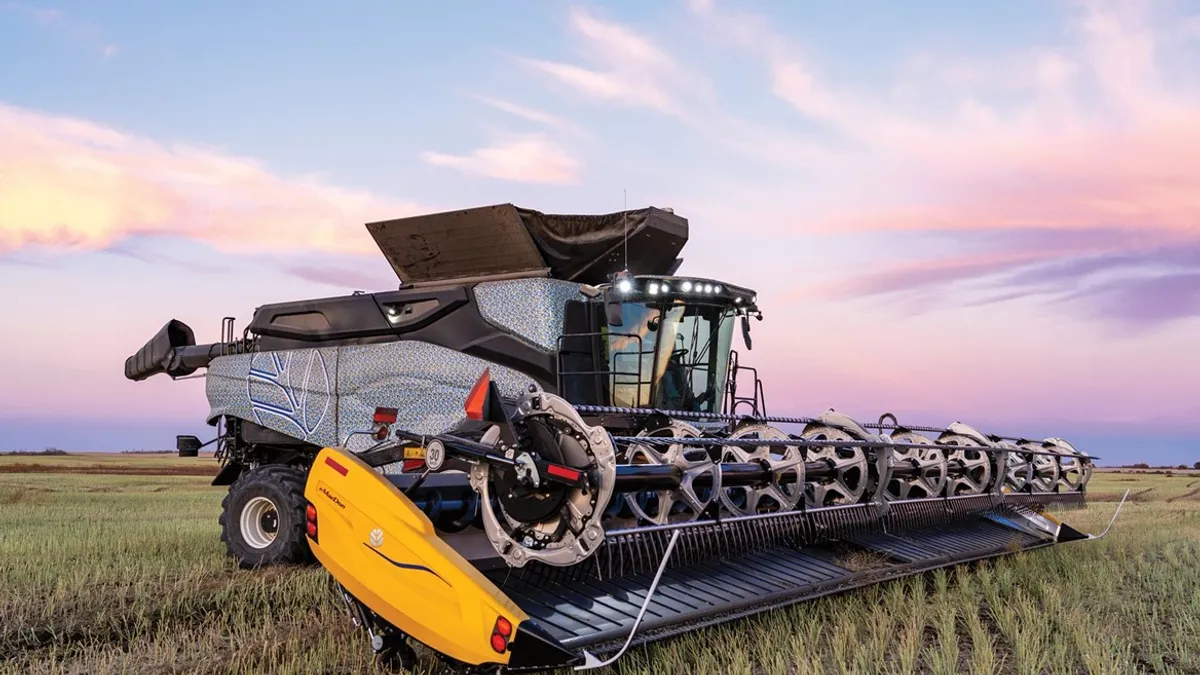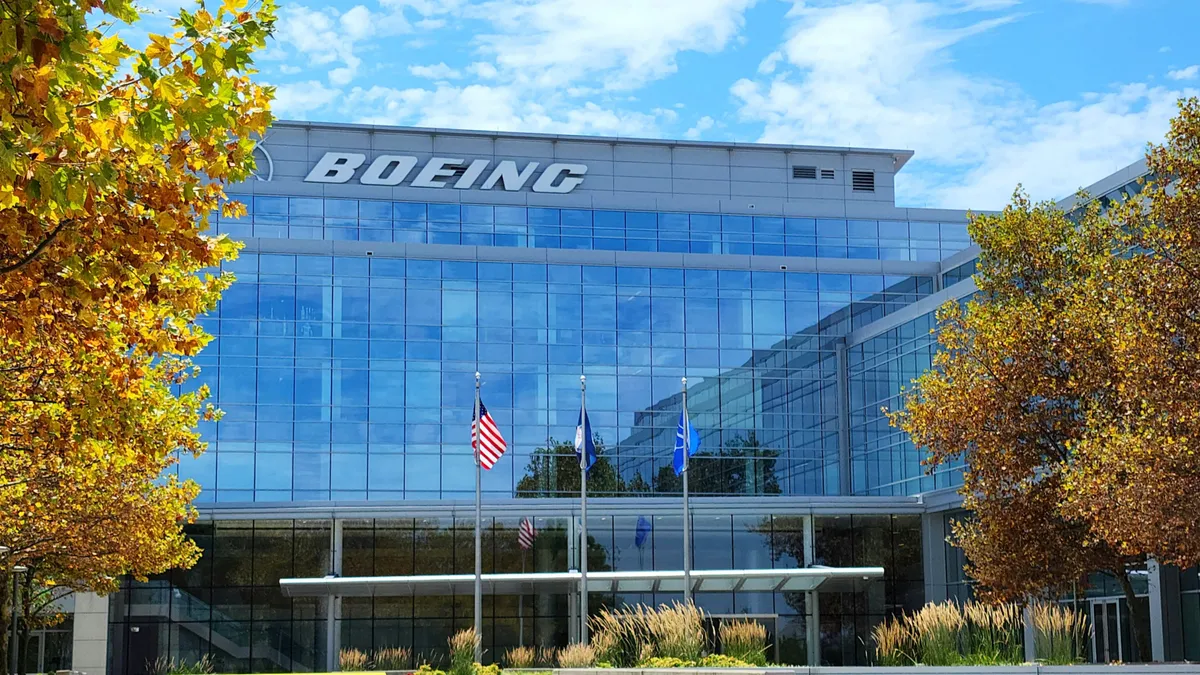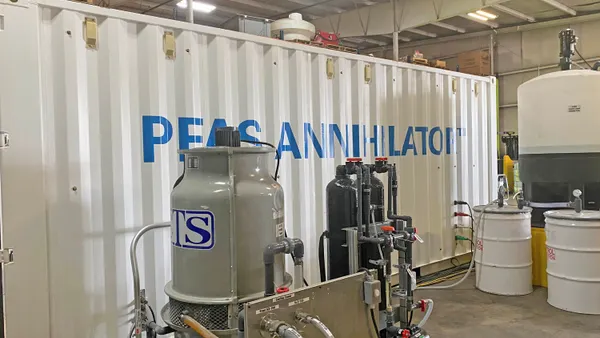Dive Brief:
- Farm equipment manufacturers CNH Industrial and Agco Corp. reported sales declines of 23% and 30% in their first quarters, respectively, over last year, underscoring an economic slowdown across agriculture sectors.
- As customers pulled back on spending, net incomes plummeted last quarter for CNH and Agco — down 64% and 95% YoY, respectively, according to their latest earnings reports. Both companies have made significant efforts to cut production and help realign dealer inventories with slow demand.
- While equipment demand has likely reached its low point for the year, geopolitical and trade uncertainties related to tariffs could encourage a “wait-and-see” approach to spending among customers as costs continue to rise, CNH CEO Gerrit Marx said on an earnings call last week.
Dive Insight:
Demand for tractors, combines and other heavy equipment has been weak since late 2022, as farmers struggle with lower incomes and higher input costs, squeezing their capacity to make big upgrades and purchases.
This trend has carried through the first months of the year and is expected to continue through 2025, company executives said during their earnings calls, as CNH and Agco evaluate the short- and long-term effects of tariffs on their operations.
“We will continue to monitor the rapidly changing tariff policies and implement pricing actions or supply chain adjustments where it makes sense and is feasible,” Agco CEO Eric Hansotia said on a call Thursday.
Agco, based in Duluth, Georgia, is unique in that much of its manufacturing takes place outside of the United States, including in France, Brazil, Germany, Italy, Finland and China, according to an investor filing. This exposure could open the company to more tariff-related risks than its competitors.
Comparatively, CNH, based in the United Kingdom, has operations around the world, but a significant manufacturing footprint in the U.S, with two-thirds of its goods sourced from U.S. factories, according to a Q1 presentation. Meanwhile, more than 75% of Deere & Co’s products sold in the U.S. are assembled domestically.
Typically, U.S. farmers expect federal support payments to act as a buffer when tariffs threaten global trade and commerce. This has kept farmer sentiment stable in the past, however, Marx said he is unsure if the same is true for this year.
“We might only see more clearly after the summer where and when demand is coming back,” Marx said on the call.
Looking ahead, Agco is projecting its full-year sales to be $9.6 billion, compared with $11.7 billion in 2024, citing expected lower demand and actions to mitigate tariffs. CNH revised its outlook, anticipating annual sales to decrease between 12% to 20% over last year. For context, these estimates could mean a roughly 40% decline in sales compared to 2023 for both companies.
“Historically, the ag equipment end market has been more resilient than other industries in terms of GDP contraction, but the uncertainty is not helping an already depressed market,” Marx said on the call.
Deere, the world’s largest farm equipment manufacturer, is scheduled to report its Q2 earnings on May 15. The Moline, Illinois-based company could see similar struggles as CNH and Agco for the period. In February, Deere reported a 35% Q1 sales drop and said it would continue to cut production and reduce dealer inventories to meet sluggish demand.











